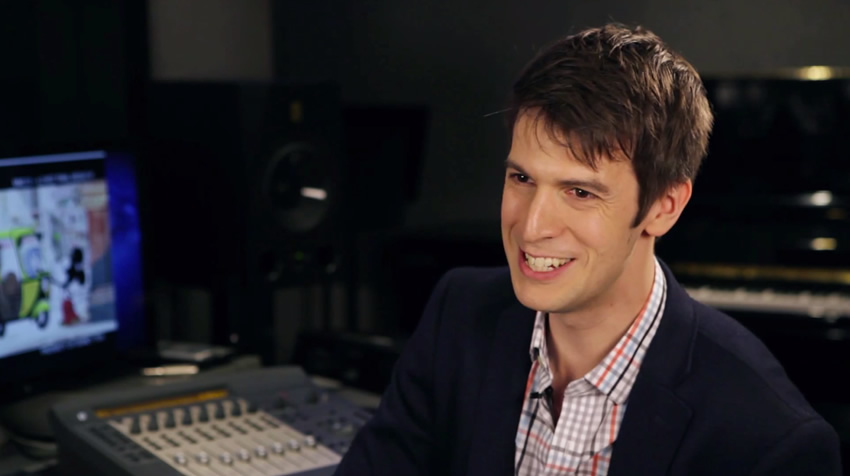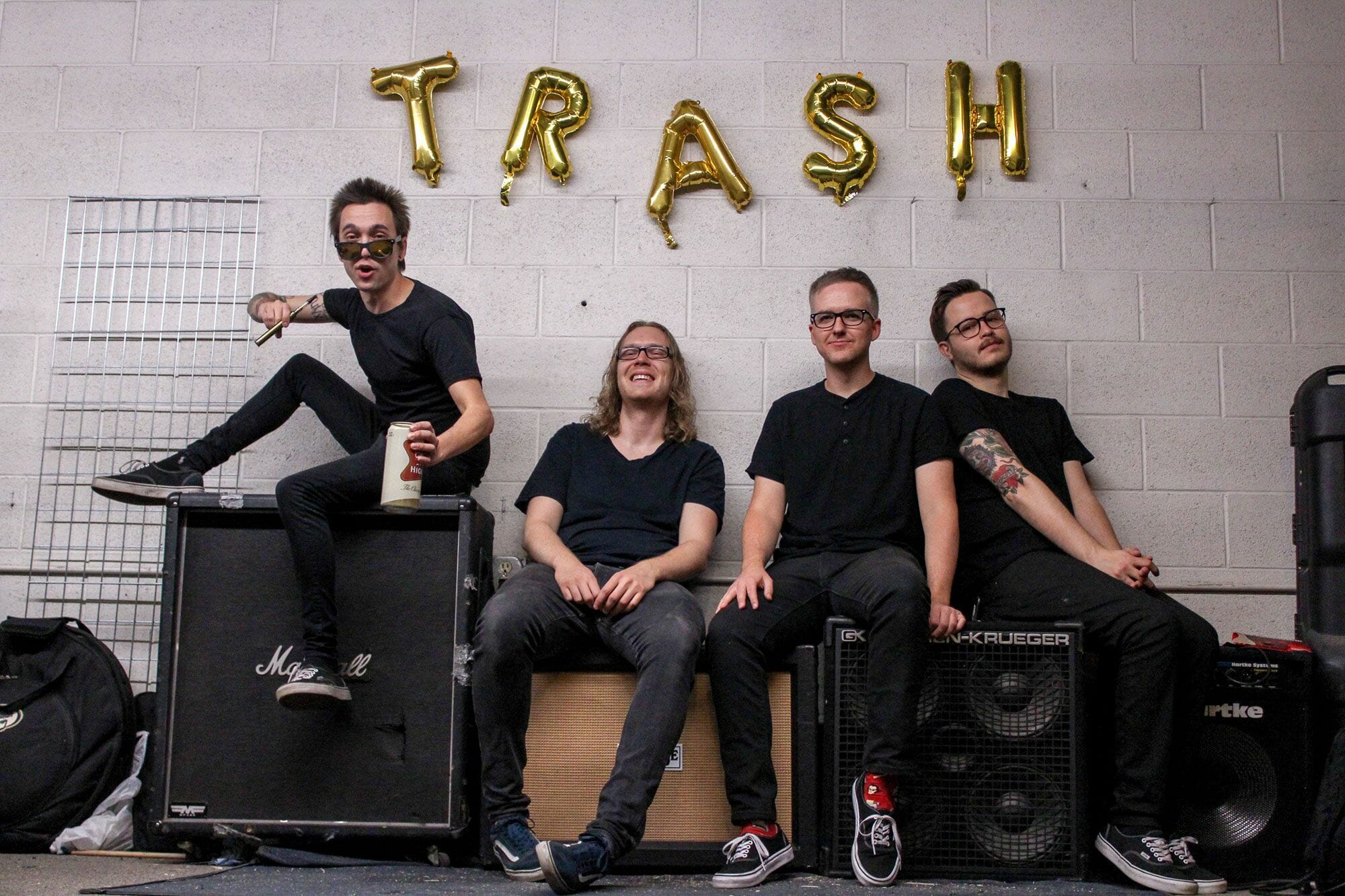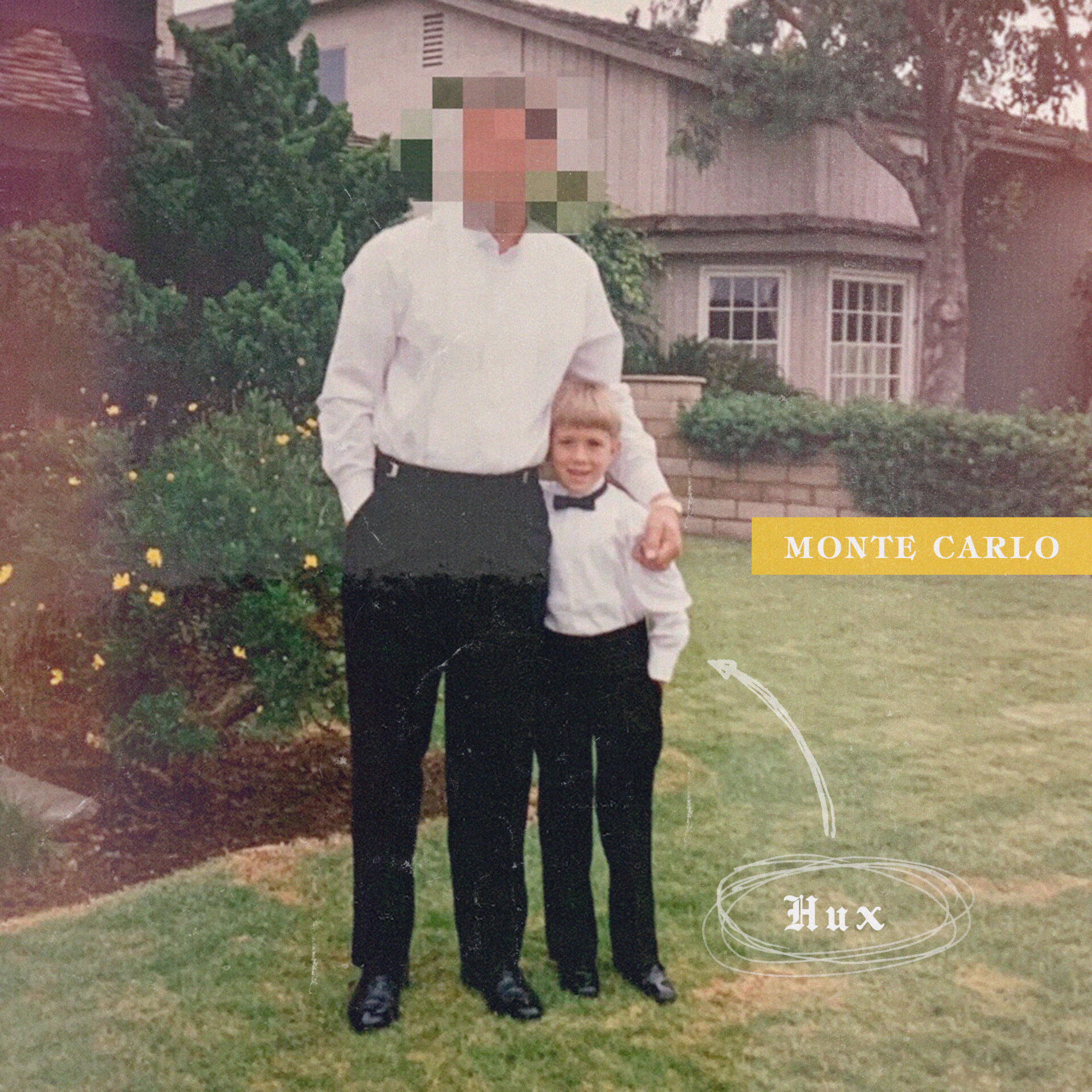Back in March, we were taken aback by just how great Armando Iannucci’s new film, The Death of Stalin, was. Even more than the film itself, we were taken aback by just how great the music in the film is. Composer Christopher Willis sat down to talk shop with us, and oh boy did we learn quite a bit about film music composition. From starting as a student of classical music in Britain and now composing music for everything from film to TV to Disney theme park rides, Willis is a bit of a maverick in all things music composition.
Read our review of The Death of Stalin here and make sure to check the film out when it hits physical and digital platforms on June 19th!
Substream: Congratulations, first and foremost, on your score for The Death of Stalin. I really did love it and felt it complimented the antics of the film incredibly well.
Christopher Willis: Thank you very much.
S: I know this wasn’t your first time working with director/writer Armando Iannucci, was it good to get back with him?
CW: It was terrific. We had a great time working together on Veep, although of course the need for music is relatively slight in that. The music is just doing a relatively small job in maintaining the atmosphere of that show. Both Armando and I are very into classical music. He has written a column on classical music for a magazine in Britain. We knew we had a lot in common and it was fun to have a chance to work on something bigger together.
S: In reading interviews about The Death of Stalin, I realized very quickly that Armando’s classical music knowledge is vast. Did he already have ideas for you when you came onto the project?
CW: He had been listening to Soviet music from that period and had been thinking it’d be interesting if the music in the film had that flavor. And I was very keen to do that. I thought it’d be slightly unusual in the current film landscape if we didn’t just nod to that idea, but really went for it. It would almost sound like the whole film had been scored by a Soviet symphony. It’s slightly more bombastic than any score done by (Dmitri) Shostakovich or (Mieczyslaw) Weinberg.
S: In some of the craziest moments of the film, you’re really working against events that are bombastic. Did you feel the need to embolden those moments or could you sit back and let the imagery carry the narrative?
CW: It was enjoyable to really go for it in some of the more active scenes. There’s some scenes of mayhem and destruction in the film, and I think a more sober film would score those scenes with nothing at all. I felt like it suited the film much better if the score was mad and full-on.
S: Did you feel that the music needed to keep up the pace with the frenetic subject matter?
CW: Our earliest discussions were about the overall tempo of the film and a certain nervousness that there should be ticking away in the background. Armando and I swapped lots of pieces of music that we liked from that era. There was only a modest amount of learning pre-existing music. We did have music lined up, but it was more about sharing things in the abstract. Quite early on, I started writing material that went into the film. There’s a lot of nervousness in Soviet music from the 50s and I think you hear that unsettled quality here.
S: Who in particular did you listen to before making your score?
CW: I discovered there was more of a Soviet house style than I had realized. The most famous figure that we listened to a lot was (Dmitri) Shostakovich, but I was very excited to discover some colleagues of his. Some earlier composers like (Nikolai) Myaskovsky and (Alexander) Mosolov, too. There’s this crazy set of chamber music by a female composer named Galina Ustvolskaya that we listened to. There are modern Russian composers we listened to, like (Sergei) Prokofiev, but he was less tied to fortunes of the Soviet Union. I spent a good amount of time studying these scores and finding out how they work. I had to live in that world for the whole period I was working on the score for The Death of Stalin.
S: The first piece of music that’s used in the film, was that something you brought to Armando or did he already have it in mind?
CW: That’s a good question. That actually came directly from the history books. That’s a piece of Mozart and a real concert in which Stalin really did call and say that he wanted a recording when there wasn’t one. The conductor fainted at the news. It was rather astonishing. All of that is true. We recorded the Mozart itself. That was actually me you can hear playing the piano. I used to be a pianist more than a composer when I was starting out. It was an easter egg, in a way.
S: When did you realize that you wanted to be a composer as a life-long pursuit?
CW: I’ve always wanted to write music and I’ve always written music since I was a little kid. I don’t know if I ever took seriously the idea that I’d become a composer. I grew up with classical music and had a very traditional musical education at Cambridge. As I mentioned, I became a concert pianist for a few years. I was always rather restless. After being a concert pianist, I had a brief stint as a musicologist and really wasn’t sure what to do from there. I was trying to write concert music on the side during that time but had difficulty with the concert music scene in Britain in the 90s. Quite suddenly I fell in love with film music and the idea that I could write music every day that people all of the world would hear.
S: How did you get your start in the world of film music composition?
CW: I wrote a demo in my own world of classical music without knowing much of the film world. My knowledge of movies was good but my awareness of the real nitty gritty aspects of film music and how intertwined they were was very superficial. So, I wrote this demo and was given a job by Rupert Gregson-Williams. Things moved very quickly and I found myself out of the UK and in LA. Rupert was willing to work with what he probably saw as a musical talent with limited knowledge about the movie industry.
S: He’s probably not a bad mentor to have!
CW: Just watching him writing music was revelatory. Compared with the composers that I knew, he wrote very quickly. If he didn’t like something, he would throw it away and write something else. His process was very organic and quick. I spent some time in Harry Gregson Williams’ studio and worked with Carter Burwell on a couple of projects. Carter is very inspiring.
S: Carter Burwell is one of the best composers working in film today!
CW: He’s a purist in a way that I find very striking. He would stick to his guns against quite considerable pressure from a studio, which I found very impressive. The purity of the way he spoke about the things that he did, too.
S: We talked earlier about moving from TV to feature films. Is there a form you prefer over the other?
CW: There’s probably more of a grey area between TV and film right now than there used to be. There’s certainly more TV schedules that are more spread out and mimic a movie schedule, to some extent. Then there are movies that are turned around very quickly because the technology has changed and the budgets are quite tight. It’s interesting moving from TV to something like The Death of Stalin because of having more time on screen to express yourself. It was wonderful in Stalin to have the resources that we had. The orchestra we used was enormous. I actually asked to employ an unusually large orchestra to get that soviet sound, which we did, and the resulting weight really helps you to get into the film. There are certain virtues of TV shows that are unsung. It’s nice to keep spinning the musical world that you’re creating into a bigger and better web. I do these Mickey Mouse cartoons and as time goes on, the amount of music continually grows but we can have sneaky easter eggs so the real diehard fans can start to have this whole lexicon of things they’re listening to.
S: I know you’re very invested in the classical music style of composition. Is there another form you’d like to explore, and maybe someday master?
CW: I just mentioned the Mickey Mouse cartoons. They take place all over the world and I find myself listening to and attempting to write in these wildly different styles. I often find that I become hugely attached to whatever I’m listening to at one time. There was a time I was listening obsessively to Bollywood music, and another time instead with Turkish Jazz and Rock music. We’ve done two episodes set in Brazil, so I listened to Bossa nova and Samba. A large number of those things leave me with a hankering to come back to them at a later date.
S: What current musical artists do you listen to right now when you’re not composing?
CW: I’ve been listening to Bluegrass because I’m writing a little bit of it. I just discovered this wonderful song called “Fox on the Run” that Bill Emerson recorded. Everyone tends to come back to the music that they grew up with and for me, that is classical music. When not working, I tend to go back to Beethoven and Mozart. When I was a little kid, I really grew up with Queen. I was awestruck. My love of them does pop up here and there in my work. There’s something about how stylish and melodic they were that I still admire enormously.
S: Have you heard any film scores in recent films that you admired?
CW: It was wonderful to see Star Wars: The Last Jedi. I grew up with John Williams’ music and I just think it’s extraordinary that we have him still working on that saga. We have a legend among us. I very much admired the score to Get Out. It was very stylish. There was that wonderfully strange thing played over the opening. The score really gave it that Hitchcockian air. Phantom Thread I thought was beautiful, as well.
S: If you wanted anything taken away from your body of work, what would it be?
CW: Goodness.
S: Sorry, I know it’s a loaded question.
CW: I love melody, so I’d hope that people come away remembering my tunes. Above all, as a film composer, one hopes to enrich the story. To always be writing the right thing for the story. I hoped in The Death of Stalin to enrich that story and the strange blend of the macabre that was in it. I read a nice review from an outlet in Adelaide and they wrote that the end credits music was sort of carnivalesque but also slightly terrifying. They said that similar things were happening in the world right now. The world events are sort of entertaining in a weird way, but also slightly terrifying. Not sure if I was responsible for that reviewer’s reaction but if I can prompt people to come away from the film with complex impressions, then I’m happy.
S: Well, the film would’ve been much less without your score. Especially in those slow-motion sequences.
CW: Armando told me he had more trouble than expected working out what exactly those sequences should be. It was an early victory when those ended up in the film. I very much felt a part of the team when we got those sequences working.
S: Did you have a favorite moment from working on the film?
The actual recording process was hugely enjoyable. We went to Belgium and Armando came. It was certainly the first time he worked with a big orchestra, so it was enormously gratifying to see him enjoying himself and to witness the film coming together. My wife was also there working as the soundtrack editor and it was just a very happy time putting the finishing touches on the film.
S: Armando Iannucci strikes me as the kind of person who has a nurturing environment on set, especially given the subject matter being played out. Is that correct?
CW: He creates a good atmosphere. There’s none of the cliché Hollywood horror stories. No tantrums or anything. He’s remarkably level-headed.
S: Any future projects you’d like to talk about?
CW: I’m working on this big ride for Disney World based upon the Mickey Mouse shorts I’ve been doing. It’s a unique ride in that it’s entirely original. It has its own story and song, just like the Disney rides from the mid-60s. I’ve been enjoying learning about the rides in those parks.
S: That must be a great learning curve.
CW: That’s right, and the parks have their own heritage and history. The extraordinarily creative ways the rides are designed in terms of space and music. With today’s technology, the music can do subtle and mutable things compared to a generation ago.













